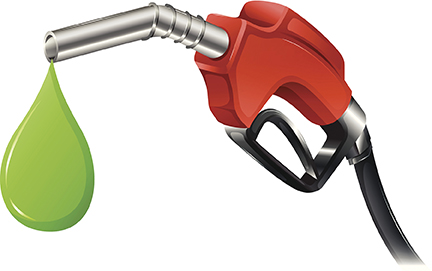
FUEL SAVINGS
BUSRide spoke with George Kalet, CNG applications and key account manager for Atlas Copco, Gas and Process Group, this month to discuss compressed natural gas (CNG) for transit buses. In this issue, we discuss the fuel savings benefits of CNG, as well as the current price of diesel and sustainability considerations associated with natural gas.
In general, how do natural gas prices compare to diesel prices?
The price of CNG is usually much lower and more stable than the “roller coaster ride” of diesel fuel prices. When we take each factor into account, be it vehicle cost or maintenance facility modification, we find that CNG presents a significant cost benefit along with a quality of life benefit from environmental impacts and noise pollution. Initial costs are higher, but those costs are repaid in fuel savings.
Now, in many markets, gasoline and diesel comes at a lower price than natural gas. This, however, is both temporary and “artificial.” The worldwide market is flooded with oil, as production is up, but prices are down as European states’ demand for oil is low because of floundering economies and increased production of more energy-efficient vehicles. Furthermore, the U.S. “shale boom,” which we’ll explain later, is also driving down prices. Overall, it’s a very temporary situation.
Prices have been decoupled from petroleum.
Are natural gas prices volatile?
Natural gas prices are very stable, though they used to be very volatile like the price of oil. When the price of oil went up, the price of natural gas went up with it because they were essentially coming from the same place – natural gas had been a byproduct of petroleum processing. However, the prices have been decoupled from petroleum totally because of shale discoveries in the U.S.
Producers have developed a cost-effective way to recover that gas, which has held prices very stable. That’s in spite of the fact that consumption is going up, as power plants and large utility users come online with natural gas – the price still isn’t rising. It’s forecasted to hold stable for the next 15 years.
Aside from fuel savings, what other savings can be gleaned from adopting CNG?
Cleaner-burning fuel means less frequent oil changes, which saves money. It affects the overall operating costs of the fleet, because it’s a gaseous fuel and there are no carbon deposits left in the engine to be picked up by the lube oil system.
With the number of heavy-duty trucks and tour buses coming onboard with CNG, we’re seeing a big increase in the amount of fueling stations around the country. Around 907 fueling stations are operating in the United States, with more coming into service each day.
What quality-of-life benefits does CNG present?
This should play into cost savings but it is almost an intangible benefit: CNG lessens the health risks of people around it. That’s a big incentive for bus fleets to go with natural gas, because of diesel exhaust pollutants and vapor fumes coming from the fuel system. It’s and much healthier experience for drivers, passengers and mechanics to not have to deal with the dirt and grime and everything else associated with liquid petroleum fuels.
